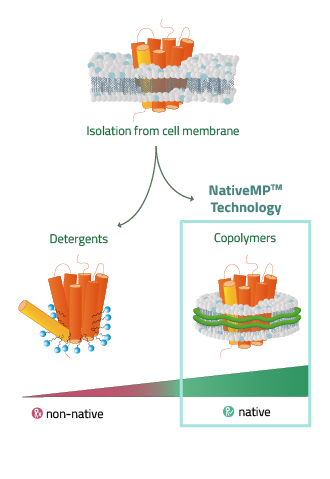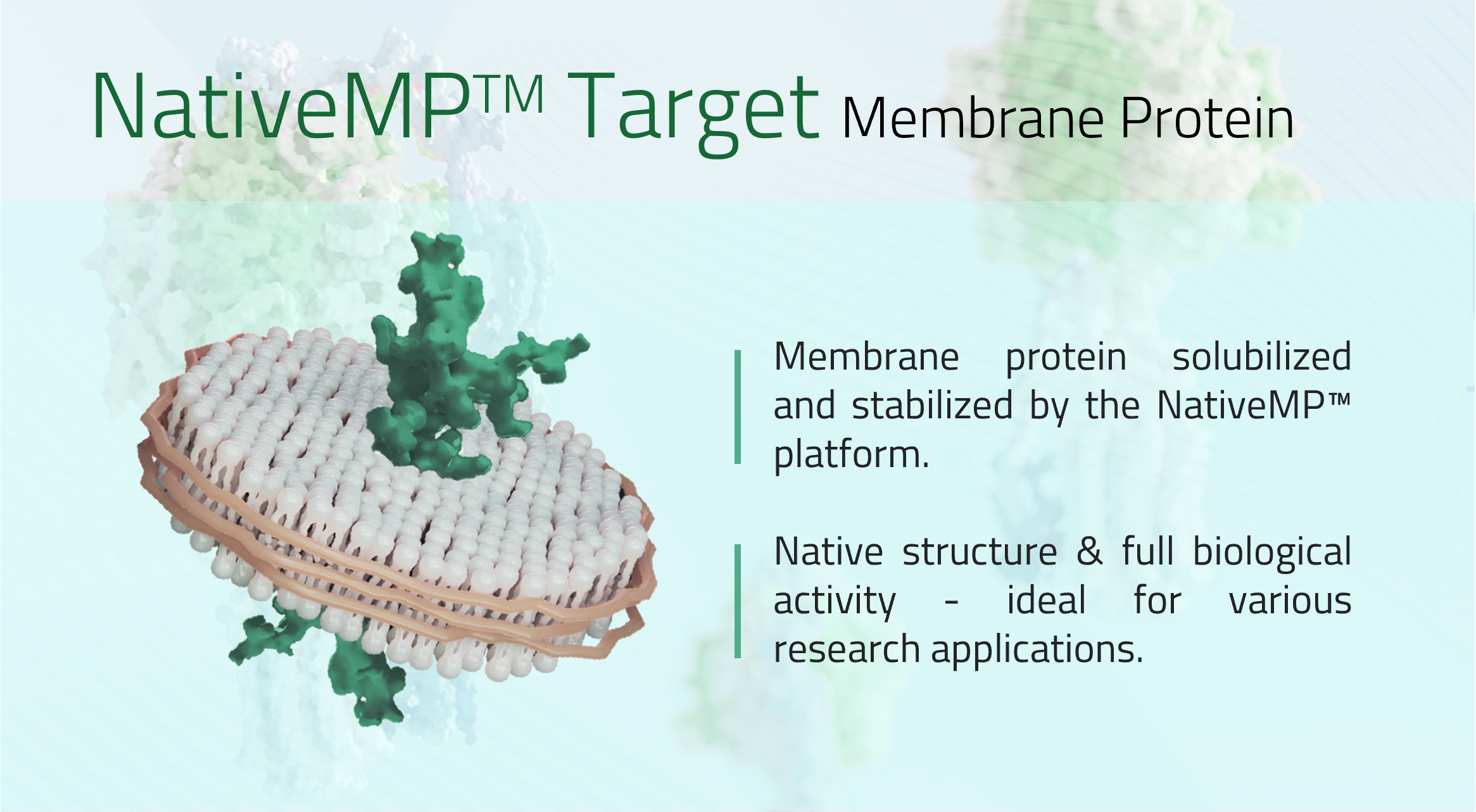SLC15A4 - Solute carrier family 15 member 4
Order number: 70642
On Request
Ready to ship today
Description
We are excited to introduce our off-the-shelf, full-length, active, and native Solute carrier family member 4, commonly known as SLC15A4. SLC15A4 is a proton-coupled amino acid transporter that plays a critical role in the import of dipeptides across the plasma membrane, as well as the transport of peptidoglycan. It is also essential for the maintenance of homeostasis in mast cell secretory granules, a process that involves the limitation of mast cell functions and inflammatory responses. Mutations in this gene have been linked to a variety of autoimmune and inflammatory conditions, including systemic lupus erythematosus and colitis.
Our SLC15A4 protein has been solubilized and stabilized using our NativeMP™ platform, ensuring it retains its native structure and full biological activity, making it ideal for various research applications.
Our SLC15A4 protein has been solubilized and stabilized using our NativeMP™ platform, ensuring it retains its native structure and full biological activity, making it ideal for various research applications.
Applications:
- Screening/Validation
- Biologics Development
- Structure Determination
- Small Molecule Drug Development
The protein delivered can be used for these specific applications. When ordering, please indicate which applications you intend to use the protein for in the contact form to ensure the best results.
For more details, explore our solubilization database.

Datasheets
Upon ordering, you will receive the corresponding datasheets and the Certificate of Analysis (CoA).
| Feature | |
|---|---|
| Alternative names | Peptide transporter 4, Peptide/histidine transporter 1, SLC15A4, PHT1, PTR4 |
| UniProt Number | Q8N697 |
| Protein class | SLC transporter |
| Original host | Homo sapiens |
| Expression system | HEK293 |
| Sequence, One-Letter Code | MEGSGGGAGERAPLLGARRAAAAAAAAGAFAGRRAACGAVLLTELLERAAFYGITSNLVLFLNGAPFCWEGAQASEALLLFMGLTYLGSPFGGWLADARLGRARAILLSLALYLLGMLAFPLLAAPATRAALCGSARLLNCTAPGPDAAARCCSPATFAGLVLVGLGVATVKANITPFGADQVKDRGPEATRRFFNWFYWSINLGAILSLGGIAYIQQNVSFVTGYAIPTVCVGLAFVVFLCGQSVFITKPPDGSAFTDMFKILTYSCCSQKRSGERQSNGEGIGVFQQSSKQSLFDSCKMSHGGPFTEEKVEDVKALVKIVPVFLALIPYWTVYFQMQTTYVLQSLHLRIPEISNITTTPHTLPAAWLTMFDAVLILLLIPLKDKLVDPILRRHGLLPSSLKRIAVGMFFVMCSAFAAGILESKRLNLVKEKTINQTIGNVVYHAADLSLWWQVPQYLLIGISEIFASIAGLEFAYSAAPKSMQSAIMGLFFFFSGVGSFVGSGLLALVSIKAIGWMSSHTDFGNINGCYLNYYFFLLAAIQGATLLLFLIISVKYDHHRDHQRSRANGVPTSRRAGSSGTETSQVAPA |
| Affinity tags | Rho1D4-tag (C-terminal) |
| Size (excluding additional elements) | 577 amino acids, 62 kDa |
| Concentration | 0.4 - 0.7 mg/ml |
| Purity | >90%, determined via SDS-PAGE |
| Purification process | 2-step purification |
| Shipping | Shipment is carried out on dry-ice for temperature stability to ensure the integrity of the product. |
| Function | The solute carrier family member 4 is a proton-coupled amino acid transporter that plays a critical role in the import of dipeptides across the plasma membrane, as well as the transport of peptidoglycan. It is also essential for the maintenance of homeostasis in mast cell secretory granules, a process that involves the limitation of mast cell functions and inflammatory responses. Mutations in this gene have been linked to a variety of autoimmune and inflammatory conditions, including systemic lupus erythematosus and colitis. |
| PubMed ID | 15498874, 11741232, 11741260, 16289537, 23186163, 25238095, 29224352, 31073693 |



